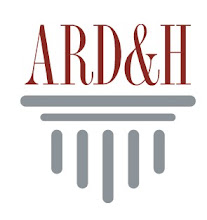If you guessed the weather, you are obviously wrong. No, these four cities hold the distinction of being home to the only current NFL franchises which have never played in a Super Bowl.
According to a lawsuit filed in Dallas last week, however, there is apparently something far worse than being a lifelong Browns’ fan. On Feb. 9, 2011, a federal lawsuit was filed in Dallas on behalf of a group of irate, ticket holding fans who arrived at the “Big Game,” only to discover that the NFL had deemed their temporary seating to be unsafe.
As such, several fans were turned away at the gates and were forced to watch their team compete on television. The claim, which targets the NFL, the Dallas Cowboys and others, alleges breach of contract, fraud and deceptive sales practices, was filed as a class action lawsuit.
A class action lawsuit is a lawsuit brought by one or more named plaintiffs who allege that they have suffered the same injury as that suffered by a large number of other parties who make up the plaintiff class. The purpose of a class action lawsuit is to avoid the time and expense of having multiple lawsuits brought by different people, all with the same claim and a common injury.
Class action lawsuits are divided into phases. Initially, the court determines whether the class should be certified. In doing so, the court must examine several factors such as the size of the potential class, whether the named plaintiffs have made claims which are typical of those possessed by the class and whether the named plaintiffs have suffered a common injury as that alleged to have been suffered by the class.
If the class is certified, the litigation will proceed with the named plaintiffs representing the interests of the class. Plaintiffs in a class action lawsuit may be either individuals or businesses. The cause of the common injury can be from any number of sources, such as a defective product, statutory violations, securities fraud, or, as the Dallas class asserts, the denial of the ability to watch your team win (or lose), the Super Bowl.
According to a lawsuit filed in Dallas last week, however, there is apparently something far worse than being a lifelong Browns’ fan. On Feb. 9, 2011, a federal lawsuit was filed in Dallas on behalf of a group of irate, ticket holding fans who arrived at the “Big Game,” only to discover that the NFL had deemed their temporary seating to be unsafe.
As such, several fans were turned away at the gates and were forced to watch their team compete on television. The claim, which targets the NFL, the Dallas Cowboys and others, alleges breach of contract, fraud and deceptive sales practices, was filed as a class action lawsuit.
A class action lawsuit is a lawsuit brought by one or more named plaintiffs who allege that they have suffered the same injury as that suffered by a large number of other parties who make up the plaintiff class. The purpose of a class action lawsuit is to avoid the time and expense of having multiple lawsuits brought by different people, all with the same claim and a common injury.
Class action lawsuits are divided into phases. Initially, the court determines whether the class should be certified. In doing so, the court must examine several factors such as the size of the potential class, whether the named plaintiffs have made claims which are typical of those possessed by the class and whether the named plaintiffs have suffered a common injury as that alleged to have been suffered by the class.
If the class is certified, the litigation will proceed with the named plaintiffs representing the interests of the class. Plaintiffs in a class action lawsuit may be either individuals or businesses. The cause of the common injury can be from any number of sources, such as a defective product, statutory violations, securities fraud, or, as the Dallas class asserts, the denial of the ability to watch your team win (or lose), the Super Bowl.
